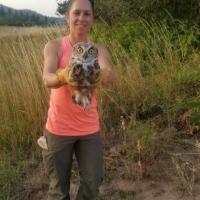
Julie Bryant-Lininger
Year Graduated:
2005
Senior Conservation Officer
Job description
I patrol assigned geographic area to detect and control violators of fish and game laws; perform surveillance activities; check licenses, bag limits, and field camps of sportsmen; plan and conduct investigations of suspected violators of fish and game laws; issue citations and make arrests; develop informants; interview witnesses and suspects; obtain, serve, and processes search warrants; testify in court; operate short-term check stations; monitor license-vending activities; control sale and use of various department permits.
Conduct biological, wildlife, and wildlife population studies; collect biological data and trap, tag, and transplant animals, birds, and fish; recommend seasons, bag limits, and stocking; investigate, resolve, and make reports on wildlife depredation complaints; inspect and approve stream alterations and construction projects for fish and wildlife impact; Certified in Wildlife Chemical Immobilization Techniques Schedule 2-4 drugs.
Setup and attend meetings regarding fish and game practices and problems; present information to sportsmen's groups and other organizations; recruit and train volunteer hunter-education instructors; assist in search and rescue operations. Teach Hunters Education, Trappers Education and Archery Education to hundreds of students each year.
Instructor in Weapons Retention, Weapons Disarming, Ground Fighting, Arrest Techniques and Defensive Tactics.
NRA Range Safety Officer.
Instructor for all things medical (CPR, AED, WFA,Tac Med etc training and grants) for Idaho Department of Fish and Game due to being an American Heart Association First Aid/CPR/AED Instructor and Federal Law Enforcement Training Center Instructor in Tactical Medicine.
Why did you choose this program?
During my first semester I looked through the course catalog (for all the programs) and began circling the classes that I had an interest in. The Wildlife program had the most classes that I was interested in. So I changed my major to Wildlife from Fisheries/Hydrology. By my third year I decided to double major in Biology as well.
How did this program prepare you for your job?
The HSU Wildlife program had a lot of report writing and public speaking/presentations (which I absolutely hated in college). This Wildlife program pushed me to improve upon this skills, which definitely benefited in my career.
What did you enjoy most about the program?
(Changed the question a little... from enjoyed to appreciated.) I really appreciated the instructors in the Wildlife Program. They were really understanding to those of us who had to work long hours to pay for school. If I couldn't make a field trip I was always able to make it up somehow.
I really enjoyed the museum specimens that we were able to examine. My bird Identification is still top notch even though I took Ornithology and Waterfowl almost 18 years ago.
What would you say to prospective students who are thinking about applying to this program?
Never stop learning. Learning comes in many forms online, in books, to wilderness first aid courses, to backpacking trips, to learning to drive a boat, to hunting and fishing, etc. The HSU Wildlife Program is well known for producing highly qualified candidates, but if you can't get to your study site you can't do the work. Can you operate an ATV, dirt bike or boat? Can you put on snow chains, change a tire, or change a belt on a snowmobile? Can you read a compass or GPS (alone at night)? Can you work independently in rugged terrain in adverse weather conditions for a few days? Take time to learn skills pertinent to what you would like to do with your degree.

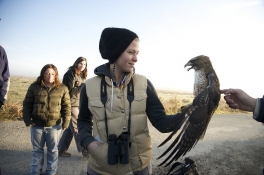

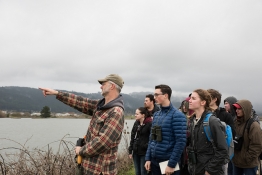
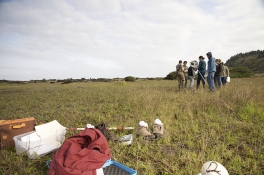
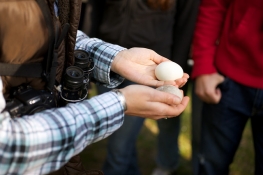

Other comments?
If anyone is interested in working with Idaho Department of Fish and Game please don't hesitate to call, text or email me. Julie.lininger@idfg.idaho.gov, or (208)819-1309